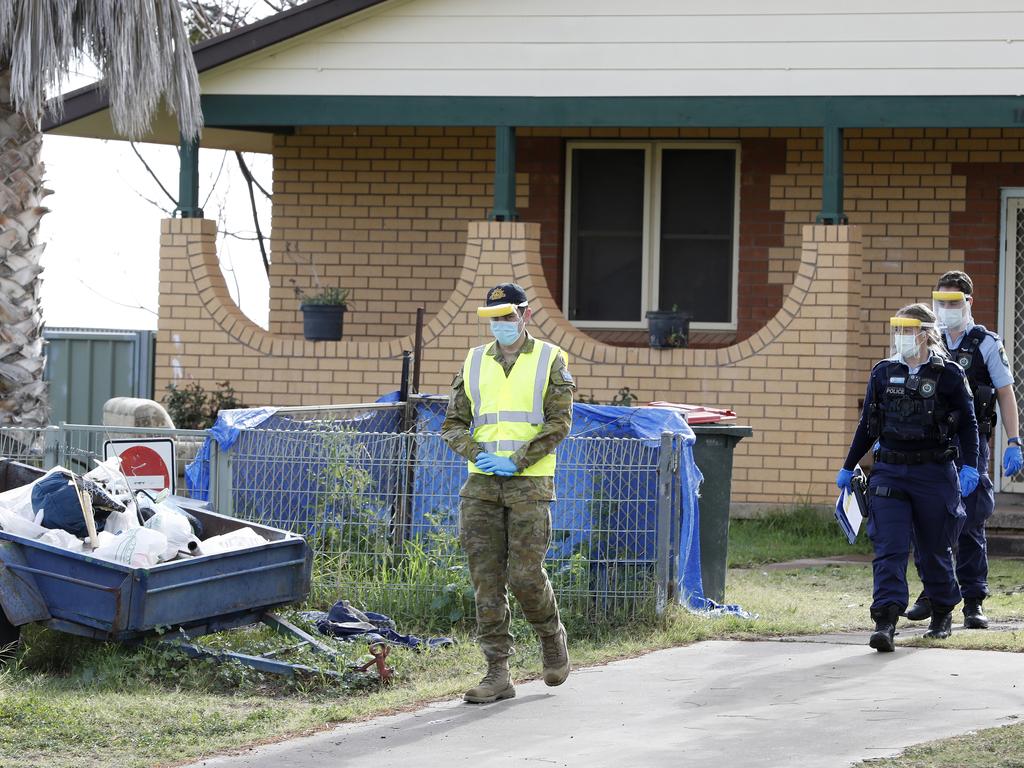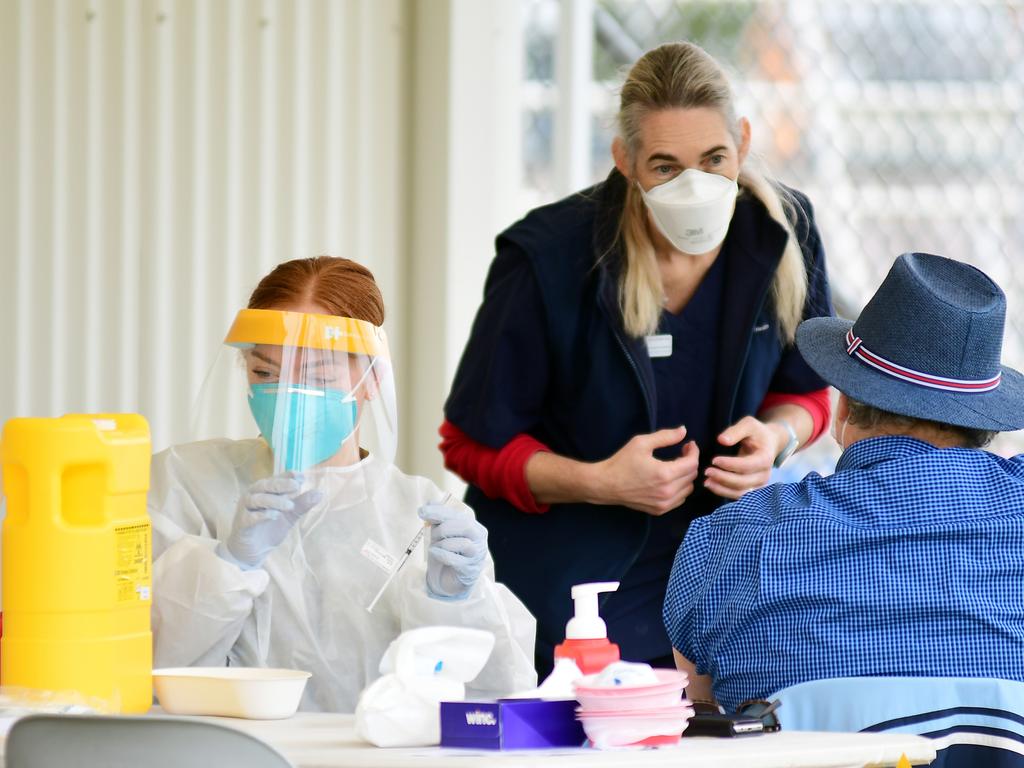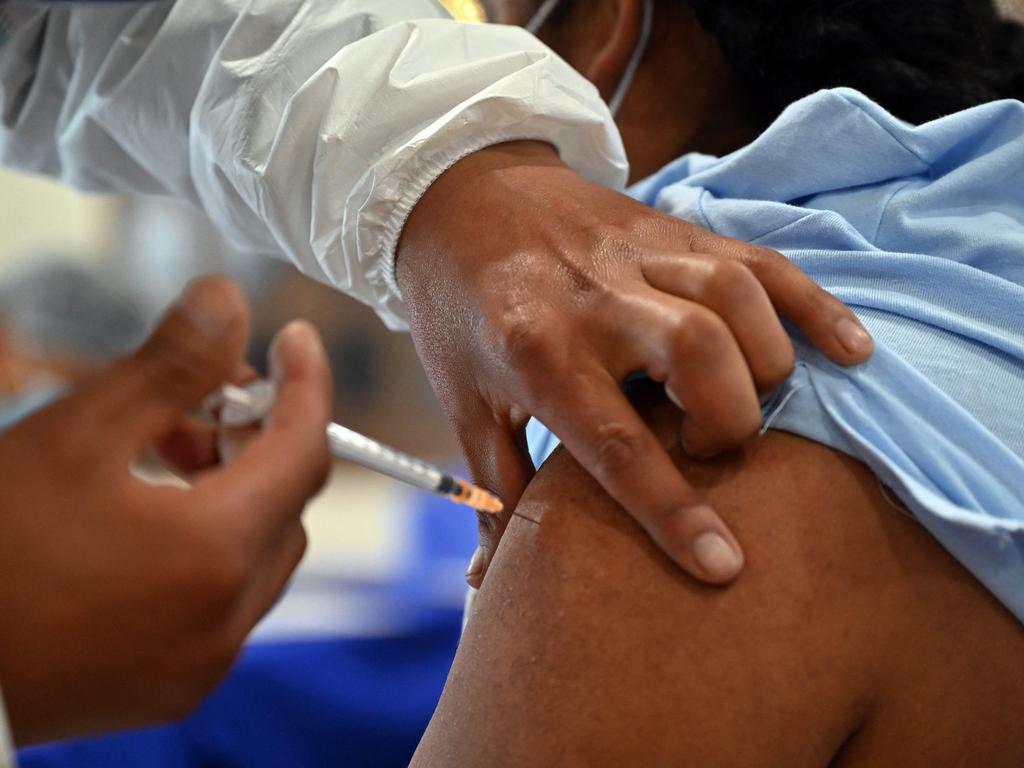First Aboriginal Covid-19 death, as case regional NSW case numbers surge
Gary Dunn has become the first Indigenous Australian to die from Covid-19, as rising case numbers and low vaccination rates in western NSW take their toll.

Wiradjuri man Gary Dunn has become the first Indigenous Australian to die from Covid-19, as rising case numbers and low vaccination rates in western NSW take their toll.
The father of 12 from a large and prominent Dubbo family was among several Aboriginal people with Covid-19 treated at Dubbo Base Hospital since the virus was confirmed to have reached the central and western regions of the state on August 11.
“He was a really great father to his kids. (The Dunn family) are a very close family and … it’s devastating on everybody,” a friend of Mr Dunn, Belinda Beale, said.
Mr Dunn, who was aged in his 50s, was living in south Dubbo, Ms Beale said.
On Sunday night, he died in hospital due to issues with fluid gathering in his lungs.
He had a range of health problems, and had not received any doses of a Covid-19 vaccine.
Indigenous people were prioritised in the Covid-19 vaccine rollout that began in March because of their known vulnerabilities including a higher incidence of diabetes and heart and lung disease.
However, the vaccine rollout for Aboriginal and Torres Strait Islander people was significantly delayed and disrupted in part because of shifting advice about Vaxzevria (formerly called AstraZeneca), the vaccine supplied to Indigenous medical services across Australia.
A loss of confidence in the vaccine contributed to a slowed-down rollout to Indigenous Australians, according to Pat Turner, chief executive of the National Aboriginal Community Controlled Health Organisation.
Ms Turner‘s organisation represents the medical services across Australia that worked in partnership with the federal government to plan an early rollout of to Indigenous people aged 18 and over in March.
They had begun their work when on April 8, the Australian Technical Advisory Group on Immunisation said Pfizer was preferred for people under 50.
“ (Vaxzevria) was widely distributed but many people didn’t believe it was safe and wanted to wait for Pfizer,” Ms Turner said.
ATAGI changed the advice again in June, saying Pfizer was preferred for all people under 60. This was a significant challenge because Aboriginal medical services had been supplied with Vaxzevria, a vaccine that was not as difficult to transport to remote and regional locations – yet more than 90 per cent of the Indigenous population is under 60.
“I warned everyone in Australia about the highest risk of devastation from Covid because of the underlying health conditions many of our people have and the overcrowded housing Aboriginal and Torres Strait Islander still experience despite appealing for redress for decades.”
A total of 51 new Covid-19 cases were detected in western NSW on Monday. Some 55 per cent of people in the district have received their first dose of a Covid-19 vaccine, and 26 per cent had been fully vaccinated.
Western NSW Local Health District chief Scott McLachlan said there had been a “significant” jump in the number of Indigenous people coming forth for vaccination, but it still lagged behind the non-Indigenous population.
“We know we’ve got a long way to go to get to the magical numbers of 80 per cent,” he said.
“That means for Aboriginal people older than age 12, please reach out for vaccination.”
EDITOR'S NOTE: This report has been updated and corrected.






